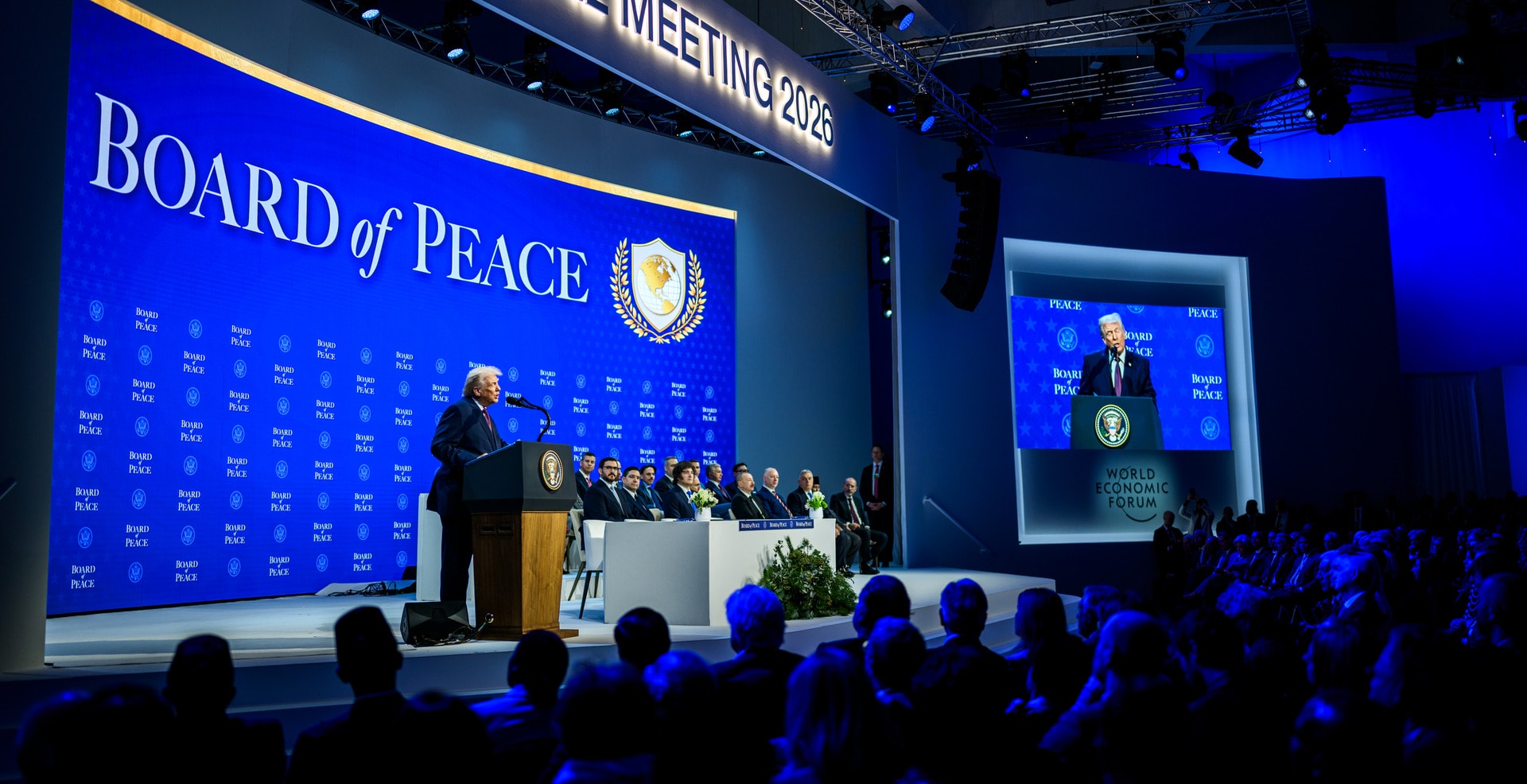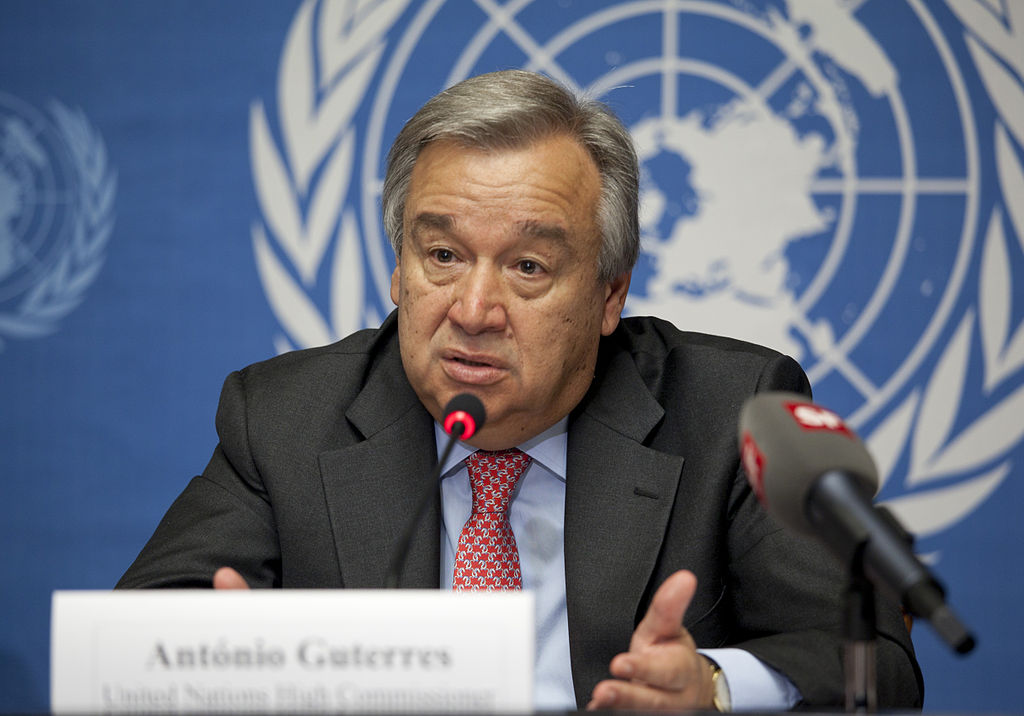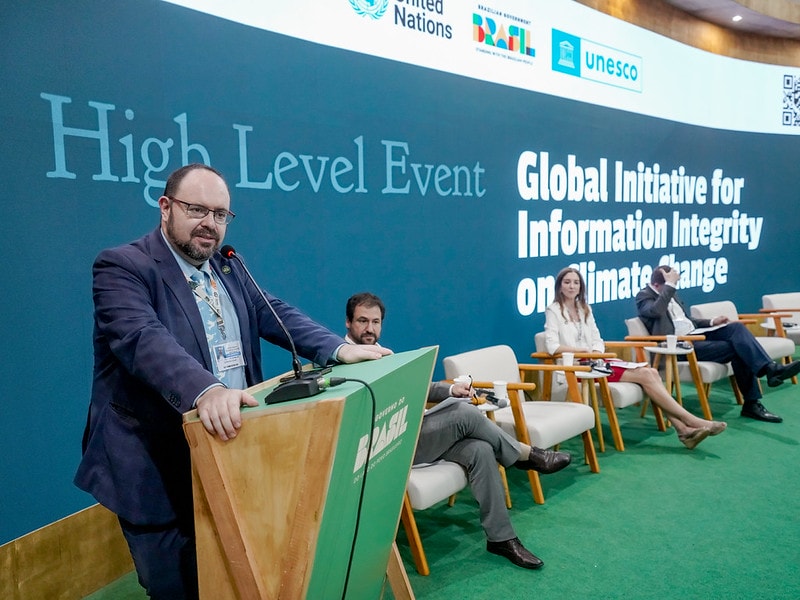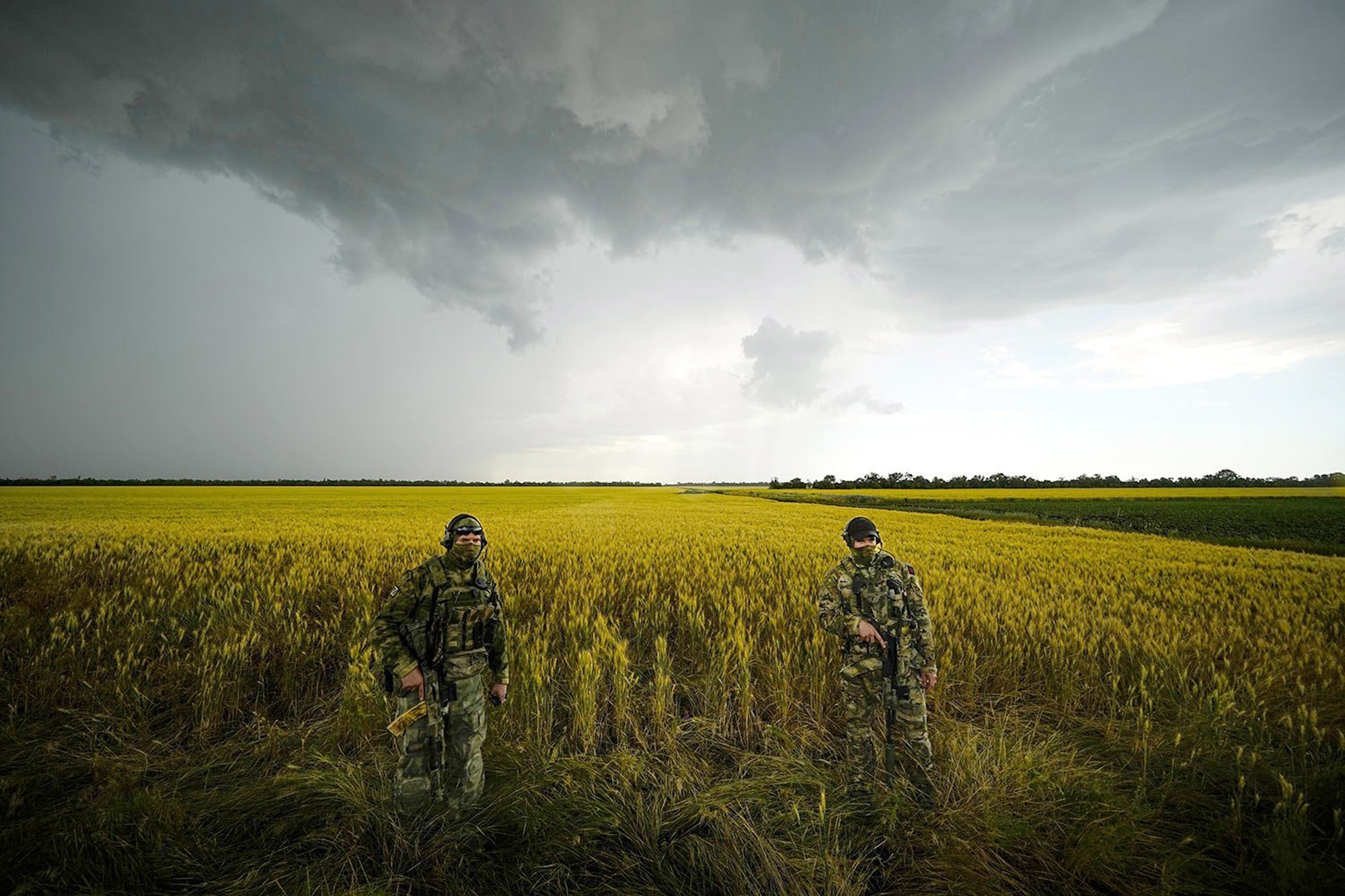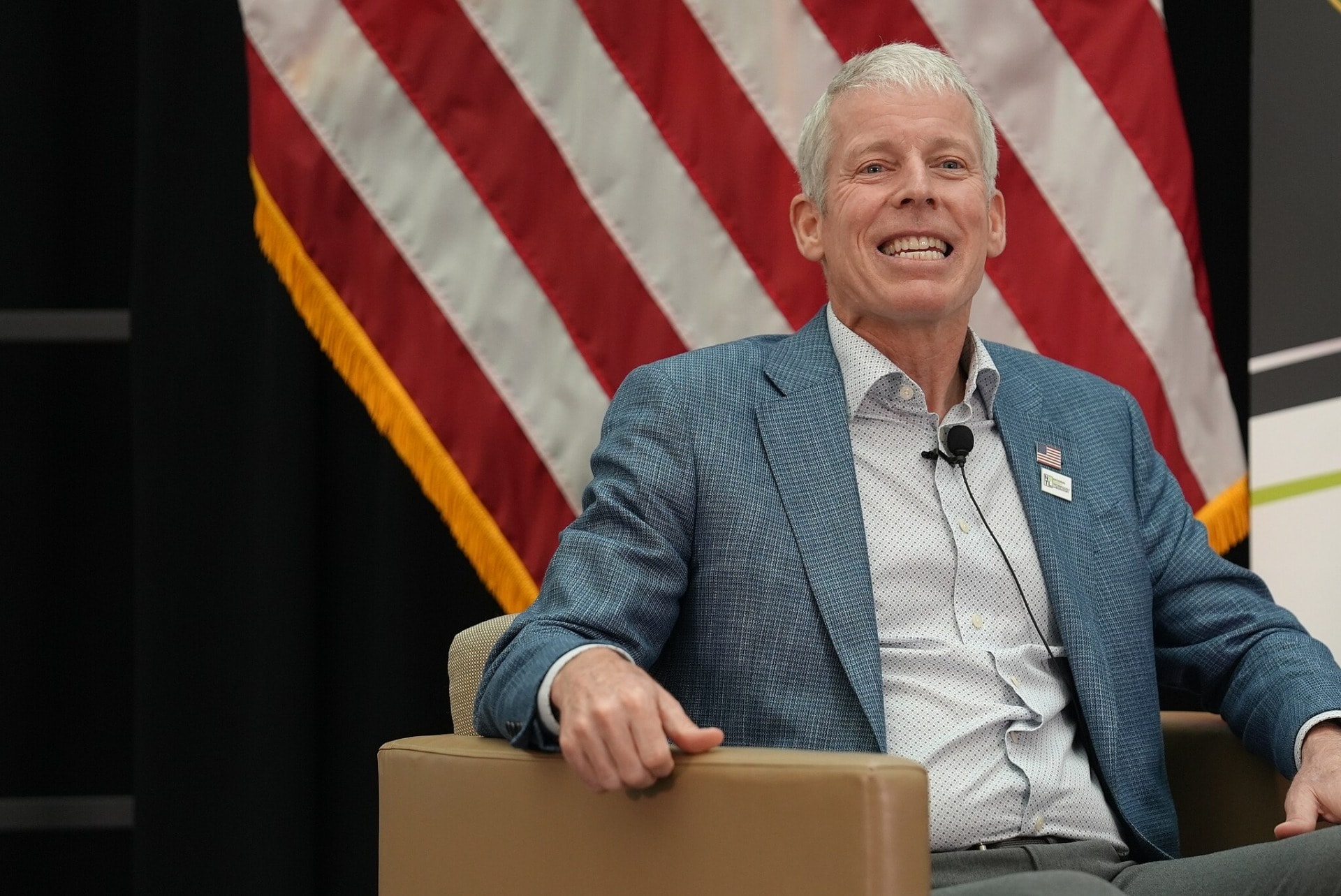“Half of humanity is in the danger zone, from floods, droughts, extreme storms and wildfires. No nation is immune. Yet we continue to feed our fossil fuel addiction,” UN Director-General Antonio Guterres told government representatives at the Petersberg Climate Dialogue in Berlin.
.@AntonioGuterres warns at #2022PCD that “half of humanity is in the danger zone,” facing heatwaves, floods, drought, extreme storms, and wildfires.
Urgent and meaningful #ClimateAction is needed now. https://t.co/imTg1x6zjj
— UN Environment Programme (@UNEP) July 19, 2022
Addressing ministers of over 40 countries via video message, Guterres warned of the catastrophic and self-induced consequences we face as a species over what he referred to as a “climate emergency,” calling for more concrete climate action and adding that the choice, ultimately ours, still exists:
“We have a choice. Collective action or collective suicide. It is in our hands.”
As the New York Times points out, although Guterres did not “directly address the heat wave punishing much of Europe,” his warning comes just as extreme heat-induced wildfires spin out of control in France, Spain, and Portugal.
Western Europe is gripped by #wildfires
The total area burned in France, Spain & Portugal in the past 10 days, exceeds 40,000 ha
⬇️The @CopernicusEMS #EFFIS forecast for today, 19 July shows 'Very Extreme Danger' of 🔥 (the highest level of risk) in 🇪🇸🇫🇷🇬🇧🇮🇹 pic.twitter.com/clOJJS7MwG
— EU Defence and Space (@defis_eu) July 19, 2022
His comments also come on the same day the UK issued its first-ever red extreme heat warning and Wales recorded its highest-ever temperature of 37.1 degrees Celsius, and a day before other parts of the UK are expected to see their hottest days yet.
On a wider time scale, Guterres’ remarks follow months of record-breaking temperatures and unprecedented heatwaves across the globe, from Europe to the two poles to Africa, South Asia, and South and North America.
Being reminded of that local heatwave in 1976. It’s gone global in 2022. pic.twitter.com/HsDe9Z2kZT
— Gary Lineker (@GaryLineker) July 18, 2022
“What troubles me most is that, in facing this global crisis, we are failing to work together as a multilateral community,” Guterres said. “Nations continue to play the blame game instead of taking responsibility for our collective future. We cannot continue this way.”
What’s needed instead, according to the UN Chief, is a “concrete global response” to protect the most vulnerable.
Related Articles: Water Crisis in the West Begins: Colorado River Basin on the Edge of Extinction | 98% of Countries Are Falling Behind on Climate Targets, New Report Finds
Guterres also stressed the necessity to reduce emissions, adapt more urgently to the changing climate, and secure financing for developing nations, which are disproportionately bearing the burden of the impacts of global warming despite doing the least to cause it (historically and today).
“People in Africa, South Asia and Central and South America are 15 times more likely to die from extreme weather events. This great injustice cannot persist,” Guterres told ministers in Berlin.
Close to half of humanity is already in the climate danger zone – 15 times more likely to die from climate impacts such as extreme heat, floods and drought.
We are in a #ClimateEmergency and we must #ActNow: https://t.co/ftn2sGOb1G pic.twitter.com/uVdVaKRSy0
— UN Humanitarian (@UNOCHA) June 18, 2022
What is the Petersburg Climate Dialogue
Hosted by the German government, the Petersberg Climate Dialogue brought together government representatives for a two-day discussion on climate agreements ahead of the next UN Climate Change Conference, COP27, scheduled to take place in Egypt in November.
Unlike previous conferences, this year the talks are being carried out without the previous COP chair – the UK’s Alok Sharma, whose voting responsibilities in the UK’s Conservative party leadership race stopped him from leaving London.
Although Sharma is expected to join some discussions virtually, his absence – as the representative of the UK, which holds the COP presidency until November – has “raised eyebrows among some participants,” the Guardian reports.
Following inadequate COP26 commitments for limiting global warming to 1.5C above pre-industrial levels, a goal countries at COP26 had agreed to keep alive, COP27 is expected to see countries present new and improved GHG emissions national plans (NDCs).
Map showing climate action announced by 37 countries and the European Union following the #COP26 climate summit, according to Climate Action Tracker. No country has announced sufficient measures to limit the earth's warming to 1.5 degrees by 2100 #AFPgraphics pic.twitter.com/VKb3XREDjI
— AFP News Agency (@AFP) November 14, 2021
But as the European Commission vice president and the bloc’s UN climate talks leader Frans Timmermans told the Guardian ahead of the Berlin meeting, he did not see “many new NDCs on the horizon.”
This is perhaps to be expected as governments are notoriously more concerned with immediate crises. Political leaders always push long-term issues like climate change or environmental degradation to the back burner, and instead focus on tackling short-term problems like the spike in fuel prices and the concomitant rise in the cost of living. As Politico put it in a recent article, “while Europe burns [with the ongoing heatwave], leaders go shopping for gas.”
At this point, one can only hope that the Petersberg Climate Dialogue, described by the Guardian as “one of the last opportunities to hammer out agreement” ahead of COP27, yields at least some of the much-needed yet regretfully unexpected commitments, pledges, and agreements.
Editor’s Note: The opinions expressed here by the authors are their own, not those of Impakter.com — In the Featured Photo: Fireman extinguishing a wildfire in the US. Featured Photo Credit: U.S. Forest Service/Rawpixel.



